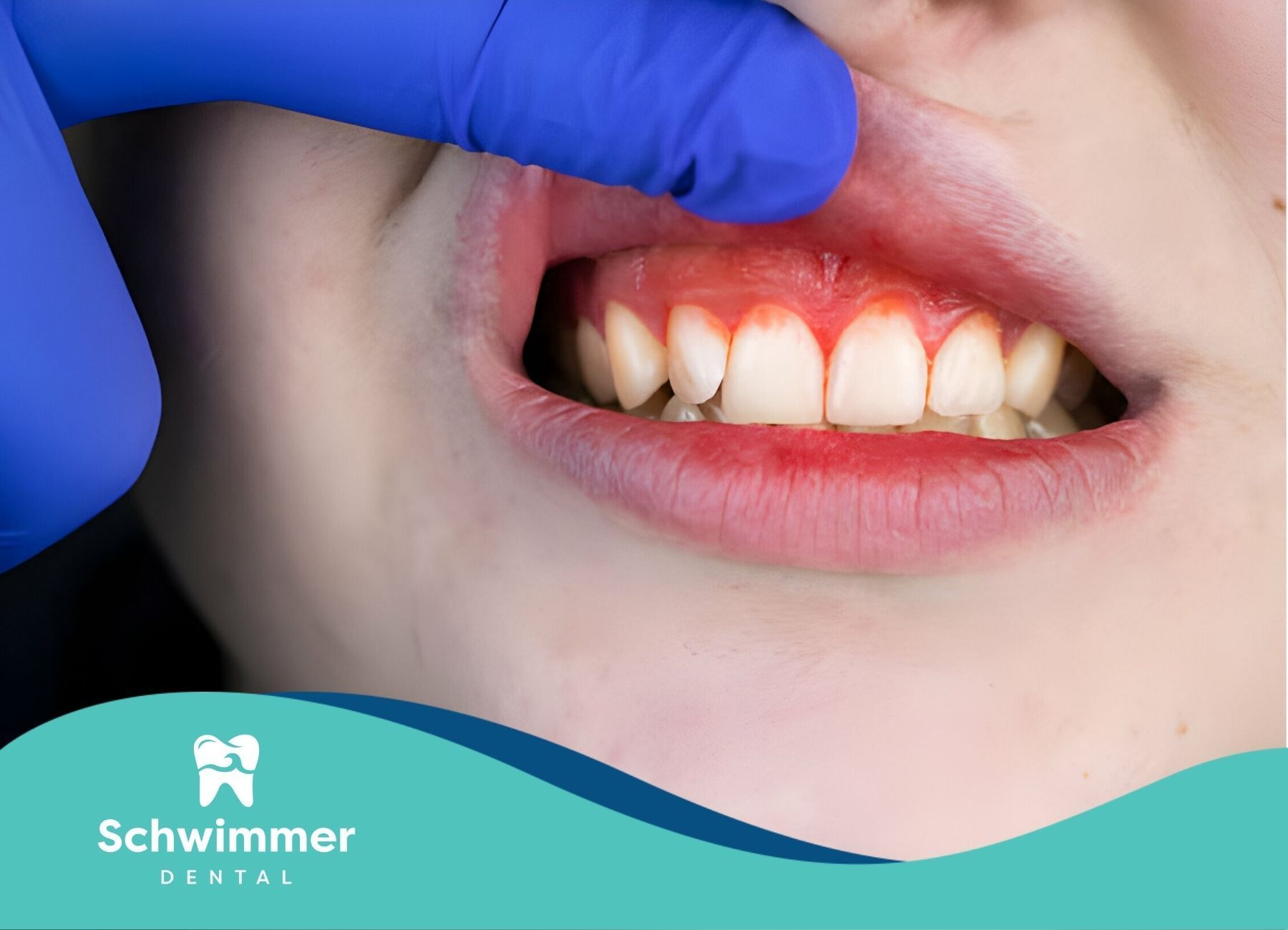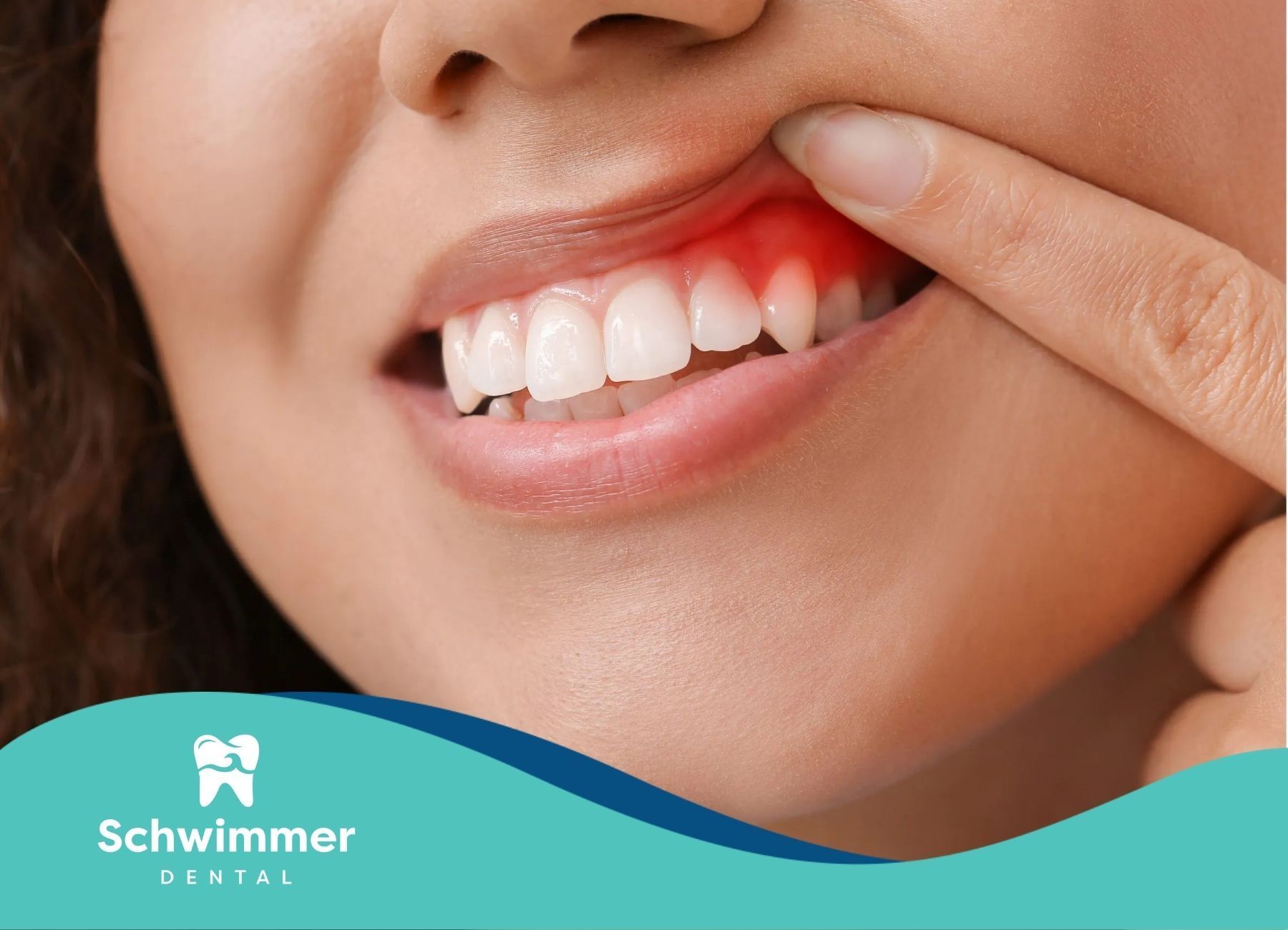Have an appointment? Complete the Intake Form
Unveiling Why Dentists Advise Against Using Mouthwash
Maintaining optimal oral health involves a multifaceted approach, and many individuals view mouthwash as a key component of their daily oral hygiene routine. However, there's a growing awareness surrounding dentists' reservations about regular mouthwash use. This exploration examines why using mouthwash might not be as beneficial as we've been led to believe and explores the potential drawbacks and cons it poses to dental health.
Understanding the Basics of Mouthwash
Mouthwash, alternatively known as oral rinse or mouth rinse, generally contains antibacterial agents, primarily designed to cleanse the areas between teeth that are harder to reach. These rinses often incorporate additional ingredients for flavoring purposes, including hydrogen peroxide for its antiseptic properties. It's worth noting that while some types of mouthwash include alcohol as an inactive ingredient, primarily for preservation, others are alcohol-free. Nevertheless, for a segment of the population, mouthwash use can lead to certain undesirable side effects, potentially counteracting the benefits of incorporating an over-the-counter oral rinse into one's daily routine.
Furthermore, concerns have been raised regarding the inclusion of artificial dyes and flavorings in specific mouthwash brands. However, it's crucial to clarify that mouthwash isn't inherently detrimental. This exploration delves into the potential side effects of mouthwash to provide a well-rounded understanding of its safe and effective usage.
The Purpose Behind Using Mouthwash
The use of popular mouthwashes has been widely popularized as a means to enhance oral hygiene and combat common dental concerns. Targeting bad breath, for instance, is a primary reason individuals turn to these rinses, aiming to eliminate odor-causing bacteria and enjoy a refreshed feeling.
Furthermore, many view mouthwash as a tool to combat gum disease, such as periodontitis or gingivitis. The advertised antibacterial properties promise to reduce plaque and bacteria that can lead to inflammation and infection of the gums.
Lastly, the appeal of preventing tooth decay also drives mouthwash usage. Some formulations containing fluoride are marketed to strengthen enamel and reduce the risk of cavities.
Common Ingredients in Mouthwash and Their Effects
A variety of ingredients are commonly found in mouthwashes, each serving a particular purpose. Some of these key ingredients include:
- Cetylpyridinium Chloride: This compound exhibits antiseptic properties that hinder bacterial growth and plaque formation, contributing to fresher breath and healthier gums.
- Fluoride: A well-known mineral for dental health, fluoride strengthens tooth enamel, making teeth more resilient to acid attacks and subsequently reducing the risk of cavities.
- Chlorhexidine: This potent antiseptic agent is highly effective in controlling bacterial growth and is often prescribed for managing gum disease. However, extended use of chlorhexidine can lead to temporary tooth staining.
Despite the presence of these beneficial ingredients, the overall impact of mouthwash on oral health is not entirely straightforward.
The Case Against Mouthwash: Dentists’ Concerns
While mouthwash might seem like a beneficial addition to a dental care routine, popular mouth rinses have raised valid concerns among dentists about their regular use. The crux of the issue lies in the potential disruption of the delicate balance within the oral cavity.
Overuse or incorrect selection of mouthwash can lead to undesired consequences, outweighing any perceived benefits. Let's explore these concerns in greater detail.
The Impact of Mouthwash on Oral Microbiome
The human mouth is home to a complex ecosystem of bacteria known as the oral microbiome. While some of these bacteria are associated with tooth decay and gum disease (the "bad" bacteria), others play a vital role in maintaining oral health by preventing the overgrowth of harmful bacteria and contributing to digestion (the "good" bacteria).
Here's where mouthwash use raises a red flag: many types, even those marketed as alcohol-free, are designed to eliminate a broad spectrum of bacteria. This indiscriminate killing can inadvertently wipe out the good bacteria along with the bad.
Consequently, the delicate balance of the oral microbiome is disrupted, potentially paving the way for the overgrowth of opportunistic "bad" bacteria and leading to further oral health issues.
How Mouthwash May Contribute to Dry Mouth and Irritation
While not always the case, certain mouthwash ingredients, including enzymes, can ironically contribute to dry mouth, a condition known as xerostomia. This is particularly true for mouthwashes containing alcohol. Alcohol's drying effect can reduce saliva production, which is crucial for neutralizing acids, washing away food particles, and lubricating oral tissues.
Inadequate saliva can make the mouth more susceptible to tooth decay and gum disease. Moreover, certain mouthwashes containing harsh chemicals or irritants like alcohol can irritate the delicate tissues in the mouth.
This irritation can manifest as a burning sensation, dryness, or even ulcers, especially in individuals with pre-existing sensitivities or conditions such as dry mouth or canker sores.
Specific Risks Associated with Different Types of Mouthwash
It's crucial to recognize that the risks connected with mouthwash use aren't universal across all formulations. The type of mouthwash, specifically its active ingredients, plays a significant role in determining its potential side effects. Therefore, a nuanced understanding of these variations is crucial for making informed decisions about incorporating mouthwash into your oral care routine, as it may also come down to personal preference.
Alcohol-Based Mouthwashes: A Closer Look at the Risks
Alcohol-based mouthwashes, while favored by some for their intense burning sensation and perceived germ-killing power, come with a unique set of risks. The alcohol content in these rinses can range significantly, and higher concentrations can exacerbate dry mouth and irritation, especially in patients recovering from a dental extraction.
Moreover, concerns regarding a potential link between alcohol-containing mouthwashes and an increased risk of oral cancer have been raised. While the research in this area is not entirely conclusive, some studies suggest a correlation between long-term, regular use of such mouthwashes and an elevated risk of neck cancers as well as certain cancers in the mouth and throat.
Therefore, those with a family history of oral cancer or other risk factors might want to exercise caution or consider alcohol-free alternatives after consulting with their dentist.
The Debate Around Fluoride Mouthwashes and Oral Health
Fluoride is recognized by organizations like the American Dental Association for its benefits in preventing tooth decay. It achieves this by strengthening dental enamel and promoting remineralization, the natural process of repairing early-stage decay.
However, the use of fluoride mouthwashes isn't without its critics. Concerns regarding potential side effects, such as dental fluorosis (a harmless but cosmetic issue causing white spots on teeth, primarily in children) and the accumulation of fluoride in the body, have fueled ongoing debate.
While fluoride mouthwashes are generally considered safe when used as directed, it's crucial to consider individual risk factors, particularly for children, and follow your dentist's recommendations regarding their usage.
Alternatives to Mouthwash Recommended by Dental Professionals
Recognizing the potential drawbacks of mouthwash, many dental professionals advocate for alternative methods to maintain optimal oral hygiene. These alternatives prioritize mechanical cleaning and less aggressive approaches to effectively manage dental plaque, plaque, and bacteria.
By adopting these alternatives, individuals can strive for a healthy oral environment without the potential risks associated with conventional mouthwashes.
Natural Remedies for Maintaining Oral Hygiene
For those seeking a more natural approach to oral hygiene, incorporating certain natural remedies can effectively complement their routine:
- Essential oils like tea tree oil, clove oil, and peppermint oil exhibit antimicrobial properties that can aid in controlling bacterial growth and freshening breath. These can be diluted in water and used as a DIY mouth rinse.
- Incorporating a diet rich in fruits and vegetables high in fiber can naturally cleanse the teeth and stimulate saliva production.
- Staying adequately hydrated throughout the day aids in maintaining saliva flow, which is essential for washing away food particles and neutralizing harmful acids.
Remember, these natural remedies can complement, but not replace, regular brushing, flossing, and professional dental cleanings.
Techniques and Tools for Effective Oral Care Without Mouthwash
Achieving and maintaining optimal oral health extends beyond simply rinsing with mouthwash. Here are some techniques and tools to effectively care for your teeth and gums without relying on conventional mouthwashes:
Techniques:
- Brushing: Employing proper brushing techniques at least twice daily for two minutes each time is paramount.
- Flossing: Daily flossing using dental floss is crucial to remove plaque and debris from between teeth where toothbrushes can't reach.
- Tongue cleaning: Gently cleaning your tongue with a tongue scraper or your toothbrush can help remove odor-causing bacteria and freshen breath.
Tools:
| Tool | Benefit |
|---|---|
| Interdental Brushes | Effectively clean between teeth, especially for those with wider gaps or orthodontic appliances. |
| Fluoride Toothpaste | Strengthens enamel and helps prevent cavities. |
By consistently following these techniques and incorporating recommended tools, individuals can effectively manage plaque, promote healthy gums, and maintain fresh breath without depending on mouthwashes.
Conclusion
In conclusion, understanding the potential impacts of mouthwash on oral health is crucial, especially regarding the oral cancer risk associated with certain types. While mouthwash can be helpful in some cases, overuse or the wrong type may disrupt your oral balance. If you’re unsure what’s right for your routine, a quick search for a dentist near me can connect you with a professional who can guide you based on your specific needs.
Schwimmer Dental in New Jersey takes a thoughtful, evidence-based approach to every aspect of oral care—including when to skip the mouthwash. Their expert team helps patients understand when mouthwash supports your routine and when it might do more harm than good. Curious if your habits are helping or hurting your smile? Book a visit with Schwimmer Dental today for personalized guidance you can trust!
Frequently Asked Questions
Why do some dentists advise against using mouthwash?
Dentists advise against some mouthwashes because they can disrupt the balance of your oral microbiome, mask symptoms of decay without addressing the cause, or contain ingredients that irritate or dry out the mouth. Instead, they recommend to use mouthwash judiciously. Effective brushing and flossing are much more crucial for oral health.
Can mouthwash negatively affect my oral health?
Yes, certain mouthwashes can negatively impact oral health, and some can even contribute to tooth stains. Alcohol-based rinses can worsen dry mouth and irritate gums. Overuse can disrupt the natural oral microbiome, potentially leading to issues like plaque buildup and bad breath.
What are safer alternatives to traditional mouthwash?
Safer alternatives include a consistent oral hygiene routine with fluoride toothpaste, flossing, and regular dental checkups. Additionally, incorporating natural remedies like diluted essential oils or salt water rinses can freshen breath, and the best way to achieve effective results is without harsh chemicals.
Sources:
- https://www.ada.org/resources/ada-library/oral-health-topics/mouthrinse-mouthwash
- https://my.clevelandclinic.org/health/diseases/21482-gum-periodontal-disease
- https://www.ncbi.nlm.nih.gov/books/NBK76363/
- https://www.listerine-me.com/cavities-strong-teeth/what-is-fluoride
- https://www.nhs.uk/medicines/chlorhexidine/
- https://pmc.ncbi.nlm.nih.gov/articles/PMC6503789/
- https://www.ncbi.nlm.nih.gov/books/NBK545287/
- https://www.listerine.com/bad-breath/alcohol-vs-alcohol-free-mouthwash
- https://pmc.ncbi.nlm.nih.gov/articles/PMC10690548/
Need Assistance? We’re Here to Help
We are dedicated to enhancing your dental health and well-being.
We provide personalized dental care solutions for a confident, healthy smile.
Contact us today for Professional Dental Care.

Our caring staff will help you feel relaxed and comfortable in our state of the art office. We respect your time and pledge to deliver prompt service, backed by the latest knowledge, techniques, and technology.
Email: Office@schwimmerdental.com
Tel: (848) 294-2385
Fax: (732) 899-3347
Address: 1115 Arnold Ave,
Point Pleasant, NJ, 08742
Schwimmer Dental – Website by CWS


